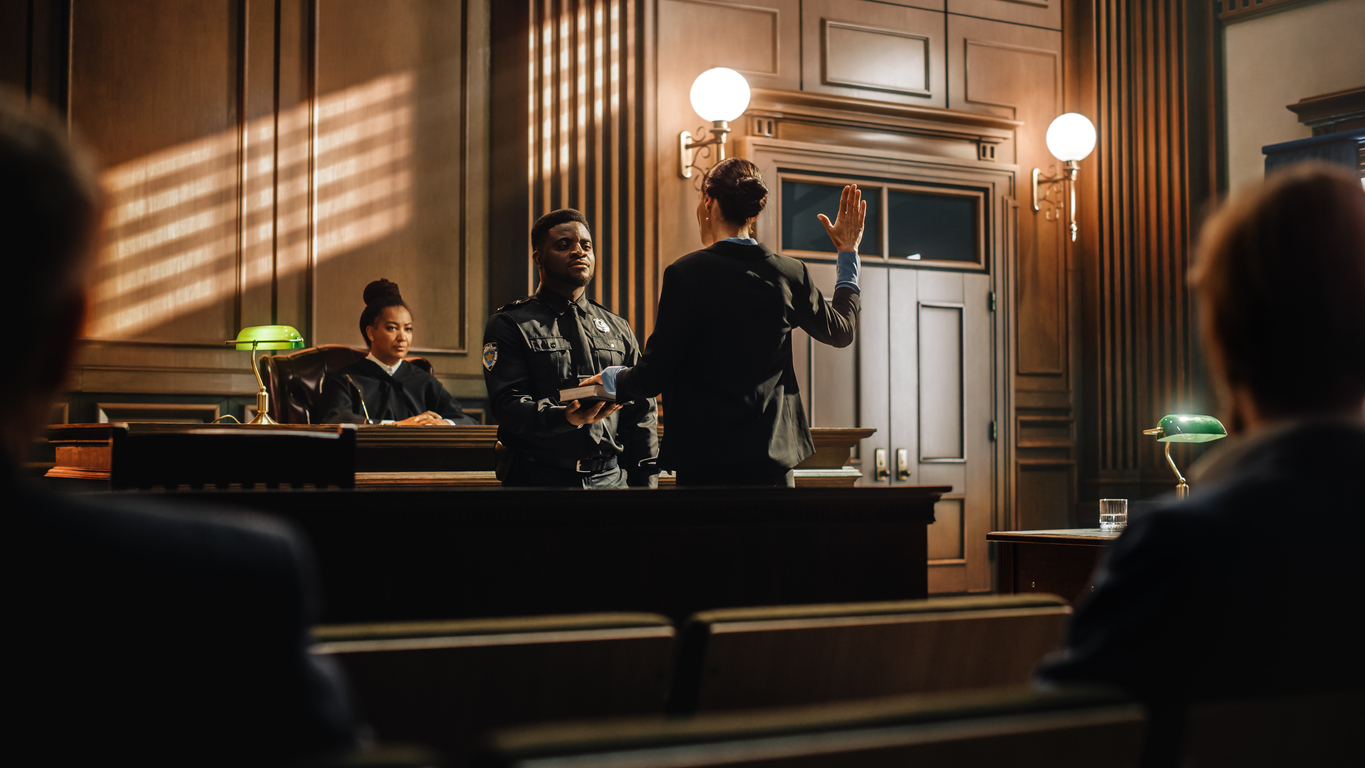Cofer Luster Criminal Defense Lawyers | May 17, 2025 | Criminal Defense

Obstruction of justice is a federal crime that happens when a defendant purposely tries to interfere with the legal process. This means doing things that get in the way of police investigations, court cases, or the work of judges, lawyers, or juries. Some common examples of obstruction of justice include:
- Pressuring or bribing witnesses not to tell the truth or to change their story (witness tampering)
- Hiding, throwing away, or altering documents and other proof that might be important (destroying evidence)
- Trying to block police officers or court staff from doing their jobs, or disturbing legal proceedings (interfering with law enforcement or court proceedings)
- Lying under oath or giving wrong information to investigators, police, or the court (providing false testimony or false information to authorities)
Many people do not realize that small actions or words during an investigation can lead to a serious charge like obstruction.
Elements of an Obstruction Charge
For someone to be found guilty of this charge, the government has to prove the following:
- Intent: The defendant must have acted knowingly and on purpose. This means you cannot accidentally obstruct justice. The law requires proof that you meant your actions to interfere with a legal process, not just that you made a mistake or didn’t understand what was happening. For example, if you accidentally lose a document that turns out to be important, that is different from destroying it on purpose to keep it from the court.
- Impact on the case or investigation: There must be a real and direct impact on a legal matter, like a criminal investigation or a court case. The action taken must actually affect, or at least be intended to affect, the way justice is carried out.
If you’re facing these charges, it’s important to work with a lawyer as soon as possible to begin building your defense.
Obstruction of Justice Penalties
Federal obstruction of justice charges are taken very seriously, and the possible punishments can vary a lot because of how broad the statute is and how many types of behaviors can be considered obstruction. Most of the time, this charge is a felony.
- Most federal obstruction convictions can bring fines and up to five years in prison. This is common for situations like lying to investigators or hiding evidence.
- Some actions are considered much more serious under the law. For example, if someone tries to kill or physically harm a witness to keep them from testifying, that can mean up to 30 years in federal prison.
- Less severe cases, like disrupting a trial by protesting or picketing right outside a courthouse, are also covered by federal law. These usually bring up to one year in prison and possibly a fine.
Because every case is different and the stakes can be high, it’s important to seek legal counsel as soon as possible.
Legal Defenses to Federal Obstruction of Justice
If you are facing a federal obstruction of justice charge, it’s important to know that there are several legal defenses that might apply to your situation. Here are some of the main defenses that criminal defense lawyers may use in cases like these:
- Lack of intent: You must have acted on purpose to block or interfere with justice for it to be a crime. If you did not know your actions would affect a case, or if what happened was an accident, you can use this as a defense.
- Mistake or misunderstanding: Sometimes people are wrongly accused because of a misunderstanding or by being in the wrong place at the wrong time. Miscommunication or a mistake could be a strong defense.
- Legitimate exercise of rights: Sometimes, what prosecutors see as obstruction is really a person using their lawful rights, such as declining to answer questions by invoking the Fifth Amendment or seeking advice from a lawyer. Actions like these, which are protected under the Constitution, generally cannot be prosecuted as obstruction.
If you have questions about a potential legal defense, professional assistance is available. Contact a qualified federal criminal defense lawyer today to schedule a consultation.
Contact The Fort Worth Criminal Defense Law firm of Cofer Luster Criminal Defense Lawyers for Legal Help Today
For more information, please contact the criminal defense law firm of Cofer Luster Criminal Defense Lawyers for a consultation. Give us a call at (682) 777-3336 or visit our convenient location:
We serve the surrounding areas of Tarrant County and Fort Worth, TX.
Cofer Luster Criminal Defense Lawyers
604 E 4th St Ste 101
Fort Worth, TX 76102
